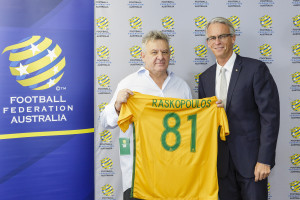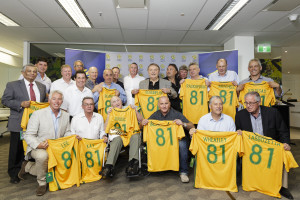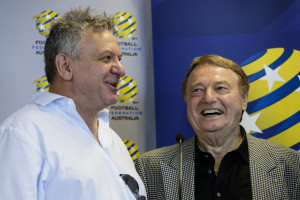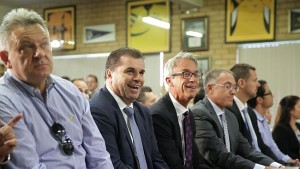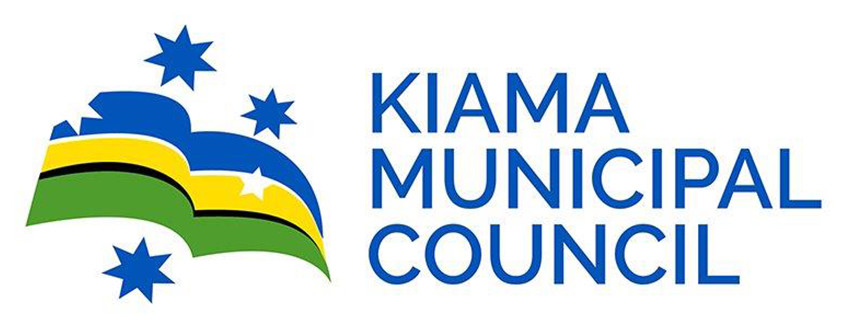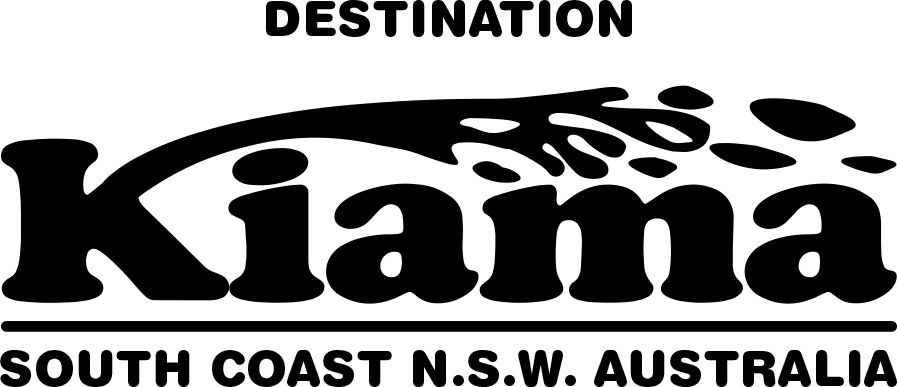SYDNEY, NEW SOUTH WALES – NOVEMBER 18:
The 2016 Football Federation Australia Hall of Fame Induction Ceremony
at the FFA Offices on November 18, 2016 in Sydney, Australia.
(Photo by Brook Mitchell/Getty Images)
Peter Raskopoulos, the former Sydney Olympic star, youth international and Socceroo was undoubtedly one of the most inspirational captains our game has ever seen.
His leadership of the remarkable 1981 World Youth team will never be forgotten.
Yet life could have been so different for Raskopoulos if he had been aware of Manchester United’s offer to Sydney Olympic for him to be signed as an apprentice after he was admired by United’s coaching staff during Sydney Olympic’s tour to England in 1978.
The offer was furnished with John Constantine, the Olympic President at the time, but after conferring with Raskopoulos’s mother who was reluctant for her sixteen year old son to go to England, the transfer never materialised.
Ironically, he didn’t hear about it till a year later and is still circumspect as to what might have been if he’d gone to Old Trafford.
Nevertheless, Raskopoulos had a brilliant career in Australian football and is one of the most highly respected former players in the country.
If there was ever to be a Pied Piper to lead the former players to the Promised Land, Raskopoulos would be a popular candidate.
In this interview with Roger Sleeman, Peter Raskopoulos discusses all things football.
ROGER SLEEMAN
Looking back on the glory days of Australian football, what feelings are evoked?
PETER RASKOPOULOS
Great memories, fun times and I was fortunate to play with those star players like Soper, Katholos, Patikas, Mitchell, Crino and countless others who were developed through the youth system.
SYDNEY, AUSTRALIA – 1981 Australian World Youth Cup Team 35th Anniversary in November, 2016.
(Photo by Brook Mitchell /Getty Images)
R.S.
What is your opinion of the A- League, the NPL and the Socceroos?
P.R.
Marketing wise the A- League is a great success with media and television coverage we could only dream of in my playing days.
There are some very good marquee players but my concern is, young Aussie players are not getting an opportunity and are going overseas at a younger age.
The NPL appears to be a development league for the A- League and to provide the chance for other players to compete at a high level.
However, you have to question whether these aims are being met.
Regarding the Socceroos, hopefully we’ll look back after Russia and say what a great job Ange Postecoglou did in building a competitive squad.
Fortunately, most of the squad play overseas and we did well considering the quality of players available.
R.S.
You were in China two months ago to watch the Olyroos playing in the qualifying tournament.
What were your impressions?
P.R.
I’m passionate about youth football but if you look at Vietnam and the Middle Eastern countries that played there, their three or four best players were better than ours.
This is an issue we’ve been talking about and sweeping under the carpet, so action needs to be taken as a matter of urgency to reverse this sad truth.
SYDNEY, NEW SOUTH WALES – NOVEMBER 18:
The 2016 Football Federation Australia Hall of Fame Induction Ceremony
at the FFA Offices on November 18, 2016 in Sydney, Australia.
L-R: Peter Raskopoulos and Les Scheinflug
(Photo by Brook Mitchell/Getty Images)
R.S.
Why have you kept such a low profile since your coaching and general manager roles at Sydney Olympic in the NSL during the early 2000’s?
P.R.
Life moves on and I made a decision to resign as CEO of Olympic because I doubted the game was going in the right direction as the NSL was finishing and the A-League was imminent.
I now enjoy life without having close contact with football, unlike some people who are passionate about the game who also need a job.
I’m not as concerned about a job as I still love the game and have a great passion for it.
R.S.
Recently, a former Socceroo who is now involved in the game stated the FFA is lukewarm at best about recognising former players and engaging clubs like South Melbourne for A-League participation.
Your comment?
P.R.
I’m a great believer if you’re the boss, you make the decisions so I’ve no issue with the FFA.
When I was CEO at Olympic, I told Chairman, Nick Politis, if I’m the boss I make the decisions so the same principle applies to the FFA.
I suppose in a way, it’s hard to keep the former players in focus as they move on with their lives after playing but there’s certainly a case to offer more opportunity for those who still want to be involved.
I would see South Melbourne offering large benefits to the A- League but when I went with Nick Politis to apply for an A- League licence at Sydney F.C. back in 2004, it was made quite clear by the FFA they wanted to move away from ethnic clubs.
R.S.
Why did your application for the ownership of Sydney FC fail?
P.R.
I went with Nick Politis to meet John O’Neil, Matt Carrol and other representatives of the FFA.
However, it didn’t take long for me to realise we had no chance to win the bid because O’Neil didn’t want a powerful and successful businessman like Nick Politis having total ownership of the club.
He was prepared to give Nick a share which he wasn’t prepared to accept but I also believe they saw him as a threat.
R.S.
Can the game make any real progress, when it’s run almost entirely by non-football people at both national and state level?
P.R.
You do need some non-football people with wide business experience and acumen who can apply a professional approach to the game.
Hence, the appointment of Danny Moulis, the former Socceroo, to the Board two years ago was much needed after the departure of Peter Tredinnick.
We need more former players on the Board like Danny who are successful professionals and who came through the youth system into the national team and know exactly what is required to elevate playing standards and the administration of the game.
R.S.
How do you assess the performance of the FFA, and particularly the contribution of David Gallop and Steven Lowy?
P.R.
Frank Lowy brought the game to a new level but the FFA needs to take control of youth team programs and junior setups because we haven’t produced the same quality of players in the last 10-15 years.
It’s a monetary game now and if your parents haven’t got the financial resources, you won’t be able to play for some NPL clubs.
Furthermore, the cost for u/12- 13 is ridiculous and somebody needs to step in to stop junior revenue from being used to pay for administrative bills.
Also at the SAP level, there aren’t many quality coaches so people are being sold on hope.
In relation to the A-League we have to create our own Aussie stars as the BBL has done.
David Gallop has done well in the marketing department but he and the Board didn’t support Ange and they should’ve done everything to encourage him to stay as national coach.
They made no effort to stem the media backlash about the system he was playing and they should’ve come out with baseball bats to the media and reiterated what a great job he had done.
As for Steven Lowy, if you’re not inside the boardroom it’s hard to analyse but I think Lowy has to understand there should be more transparency, especially with the A-League.
Clubs needs to be in control of their own destiny when they’re paying the bills so the FFA shouldn’t be making the decisions. In fact, the FFA should leave the A-League owners to run the League as they see fit.
Earlwood Wanderers FFA Cup function: February 2015.
L-R: Peter Raskopoulos, Ange Postecoglou, David Gallop and Patrick Delaney
R.S.
According to reliable sources, the FFA retains 27% of A- League revenues.
Do you think this is an equitable arrangement?
P.R.
It’s basically set up like a franchise system.
The clubs have already lost 300 million dollars since the A- League’s inception and the biggest challenge would be if three or four of the rich owners pull out which would leave the League in big trouble.
However, part of Australian culture now is if you’re in financial strife, you can always get an Asian consortium to come in with a rescue plan.
Whether that’s a positive or a negative, I’m not sure.
R.S.
Your thoughts on Australia’s World Cup chances in Russia, and the appointment of Graham Arnold after the World Cup.?
P.R.
It’s a tough group and the bottom line is form.
In the two matches against Norway and Colombia, the form was average at best which is a major concern for Bert Van Marwijk .
Arnold’s appointment was always on the table and he deserves the support of everybody for the national team to succeed.
After Ange resigned, it was made quite clear an Australian coach would be selected and I believe Arnold was the best choice.
R.S.
If you were offered an opportunity to return to the game, would you accept it?
P.R.
Probably not, because I find it difficult to work with corporate boards who don’t understand the business of football.
Football is a unique business and I firmly believe if you haven’t experienced the game, you won’t know which direction to take in achieving the desired outcomes.

